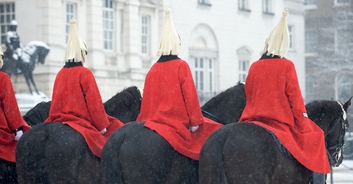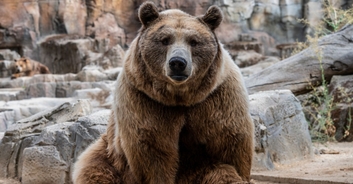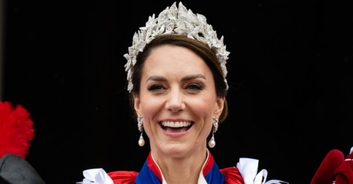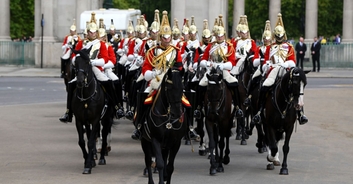Circuses, which are apparently still a thing, are about to experience a major change in the United Kingdom. For centuries, the spectacles have featured wild animals, like elephants, lions, tigers, bears, camels, zebras, chimpanzees and reindeer. Animal rights activists have vigorously criticized circuses for subjecting those animals to confinement, torture and unhealthy living conditions. As a result, nearly 40 countries around the world have introduced bans.
On Wednesday, members of Parliament announced the Wild Animals in Circuses Bill, which bans traveling circuses from making wild animals perform for public entertainment in the UK. "Traveling circuses are no place for wild animals in the 21st century and I am pleased that this legislation will put an end to this practice for good," Environment Secretary Michael Gove stated, per the BBC.
"Today’s announcement follows other measures we have taken to strengthen our position as a world leader on animal protection," he added. "This includes our ban on ivory sales to protect elephants, and delivering Finn’s Law to strengthen the protection of service animals."
In February 2018, the government committed to introducing the ban by 2020. At the time, 94.5 per cent of the public supported the motion, according to The Independent.
The bill is a major victory for animal rights groups, who have been campaigning for the ban for years. They claim circus animals spend most of their lives behind bars, babies are torn away from their mothers, physical punishment is used as a training technique, deprivation is used as punishment, and the animals are faced to things they fear, like jumping through a ring of fire, balancing on a tightrope and riding a motorcycle.
"I am pleased that today’s legislation will deliver on the ban that many welfare charities and parliamentarians have been calling for," Animal Welfare Minister David Rutley said. "The general public can still enjoy a trip to the circus, but it is good to know that wild animals will no longer be a part of that experience."
"We really welcome the Government introducing a Bill to ban the outdated practice of using wild animals in circuses," stated David Bowles, the head of public affairs at the RSPCA, the largest annual welfare charity in the UK. "We’ve campaigned against having wild animals in circuses for many years. They have complex needs that cannot be properly met in a circus environment."
"It’s high time keeping wild animals in circuses is consigned to the history books and we look forward to the day that it is banned for good in England," Bowles added.
The ban only applies to wild animals, meaning circuses can still feature domestic creatures like horses, donkeys and dogs. Officials will regularly inspect the animals to make sure they are treated humanely.
In other UK news, the government became the first in the world to declare an "environment and climate emergency."










